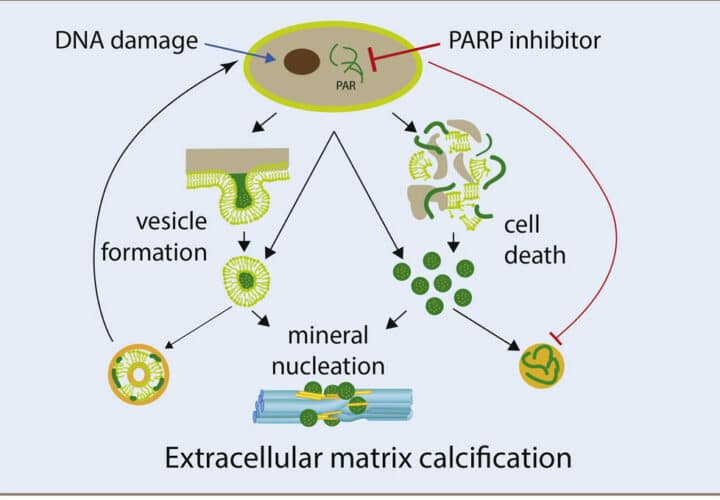Researchers discover that a common acne drug can prevent stiffening of the arteries, and reduce risk of heart disease and dementia.
A common acne drug could prevent the hardening of the arteries (atherosclerosis), a condition that’s linked to heart disease and vascular dementia.
Researchers at the University of Cambridge and King’s College London have discovered the chemical changes that cause arteries to harden. In the process, they also identified a common antibiotic that could prevent atherosclerosis. Their findings are published in Cell Reports.
Stiffened arteries obstruct the flow of blood to vital organs and tissues. This increases the risk of common heart conditions like stroke, heart attack and high blood pressure. It also raises the risk of vascular dementia and other age-related diseases.
Until now, little was known about the mechanisms that lead to the calcification of artery walls, and there is no cure for it.
Related: Lowering Your Blood Pressure Also Protects Your Brain
The researchers discovered that a molecule called PAR — poly(ADP-ribose) — forms large calcium droplets that then crystallize when they interact with tissues in artery walls, leading to arterial calcification.
They also found that common acne medication minocycline, an antibiotic, can prevent artery stiffness by blocking PAR-triggered calcification in vitro and in rats. Their preclinical tests found that minocycline treatment did not impact healthy bone development in the animals.
“Artery hardening happens to everyone as they age,” says Melinda J. Duer, PhD, co-author of the study… But up until now we haven’t known what controls this process and therefore how to treat it.”
Related: The Heart-Healthy Practice That Can Help Your Brain
Duer and her colleague Catherine M. Shanahan a professor of cell signaling at King’s College London, have been investigating artery calcification for more than 10 years. They made the discovery by accident and then decided to pursue it.
Once they established the role of PAR in artery calcification, they went looking for a way to stop it. They looked for drugs that work as PARP inhibitors, and among those, ones that had already undergone human trials. This, they said, would shorten the development time for its use as a treatment in people to prevent stiff arteries.
The team hopes to be conducting human trials of the treatment within the next 2 years.
Read Next: New Evidence That A Healthy Heart Can Help Prevent Dementia





I would be very interested in hearing more about PAR and when trials begin. It sounds very promising.